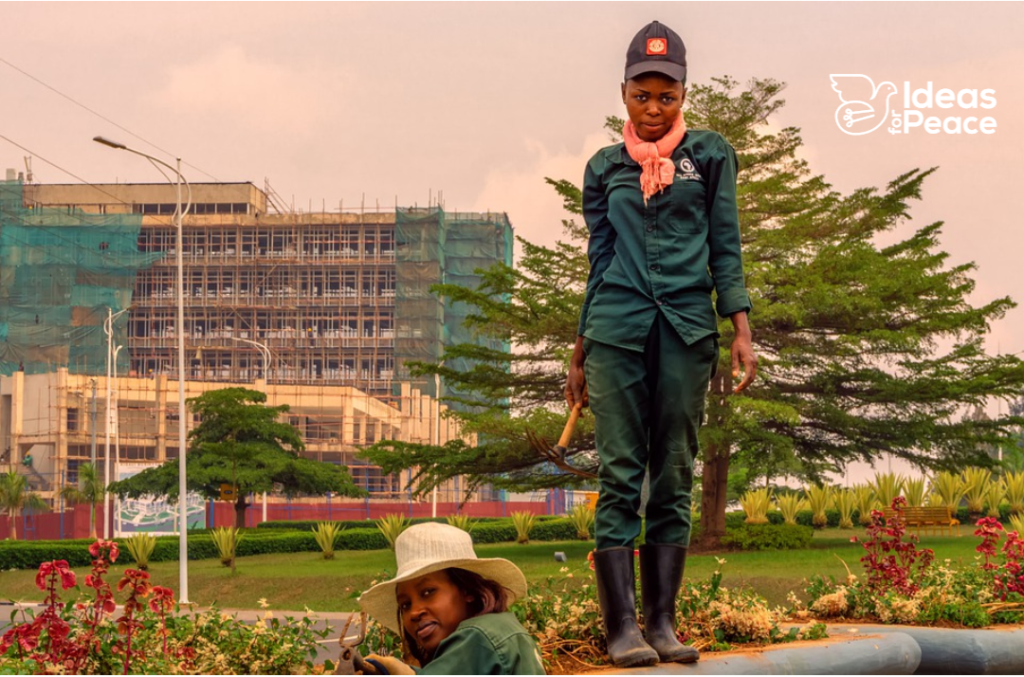Como las Disparidades de Género durante el Genocidio de Ruanda Trasformaron Derechos Humanos Regionales

The Rwandan Genocide led to positive changes in Rwandan governance and regional human rights mechanisms, especially on women’s rights.
Sometimes in April: When one fails, we all fail
Elliot Waring reviews the 2005 film Sometimes in April, written and directed by Raoul Peck.
Waring writes: “What is contained within this “review” is
a brief summary of the film and some of the questions which jump off the screen
as you watch. Other than that, this reviewer can only say, watch this film.
Watch this film and let it be a lesson to you to never forsake your fellow man,
to never let humanity fail on such an epic scale again, to never sit idly by
while atrocities are played out in front of you. Allowing violence and pain to
pass by you unquestioned is an act of violence in and of itself.”
Some Similarities Between the Armenian Genocide, 1915-1923, and the 1994 Genocide in Rwanda
The twentieth century witnessed systematic, state-sponsored killings of specific ethnic, nationalist, or religious groups across continents and cultures. Much can be learned from the individual ideologies of hate and insecurity that led to each genocide, but as Habyarimana argues, they also share significant similarities. Ultimately, genocide is not a problem that belongs to specific times and places, but a problem for all mankind. We all have a responsibility to understand what has happened, and build a future where such atrocities are an impossibility.
Machete Season
Why individuals willingly participated in the Rwanda Genocide is a question that has been widely asked and widely begged by multiple books on the subject. Consisting of transcribed interviews with ten different perpetrators of the genocide, Machete Season still only brushes the heart of the matter: that “why” that historians of such atrocities will always ask themselves.
Some Similarities Between the Armenian Genocide, 1915-1923, and the 1994 Genocide in Rwanda
The twentieth century witnessed systematic, state-sponsored killings of specific ethnic, nationalist, or religious groups across continents and cultures. Much can be learned from the individual ideologies of hate and insecurity that led to each genocide, but as Habyarimana argues, they also share significant similarities. Ultimately, genocide is not a problem that belongs to specific times and places, but a problem for all mankind. We all have a responsibility to understand what has happened, and build a future where such atrocities are an impossibility.
Intolerably Inferior Identity: How the Social Construction of Race Erased a Rwandan Population
The creation of racial identity in Rwanda, which predated the days of the genocide, may very well have been socially constructed. Aside from considering the dominant roles that the church and media played, this essay seeks to particularly explore how the Belgian inspired identification cards were used as policy instruments, serving as one of the primary tools that aided in the genocide. Racial differences were distinctly classified between the hierarchical Hutus and the inferior Tutsis. The cards said it all; they decided the fate of who would survive the 100 days of violence and who would not.
Three tales of Rwandan Genocide
Ferdinand Katendeko writes:
“Whenever the month of April approaches, I recall what happened in my neighbouring country, Rwanda. What policies should governments put in place to avoid this genocide? How should the international community prepare itself to avoid such an occurrence? What role should the local community in such circumstances of brother killing a brother? What about the regional community? These are some of the questions that I would pose for every one to ponder as they read the testimonies given below.”
Genocide in Rwanda: Draft Case Study for Teaching Ethics and International Affairs
This case aims to use the genocide of 1994 in Rwanda to help students appreciate what may be the roots and common causes of genocides. It is written in the suspicion that there may be some sort of “recipe” that can be followed by political elites bent on the extermination of a group. This article was originally published on http://www.ciaonet.org/isa/wrs01/
Post tenebras lux
The Burundi war is sordid like all the other wars in the world. For this reason it must not be singled out. Burundi is plunged into mourning by a violence that the international community, out of ignorance or oversimplification, tends to simply portray as an ethnic war between Hutus and Tutsis, fanned by ancestral antagonism between these two communities. It’s utterly wrong. The Burundi war is complex and frightfully modern. It is a war for trifling political power and control of the resources. It simply uses the most fallacious pretexts (ethnic group, region, political affiliation) to disguise its true face. In so doing, it utterly resembles so many other armed conflicts in the world
